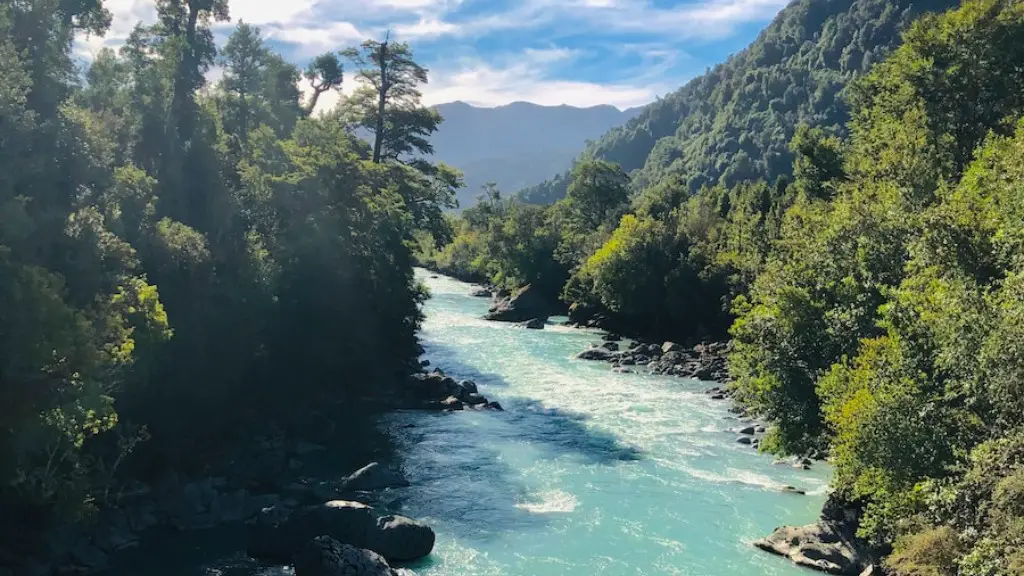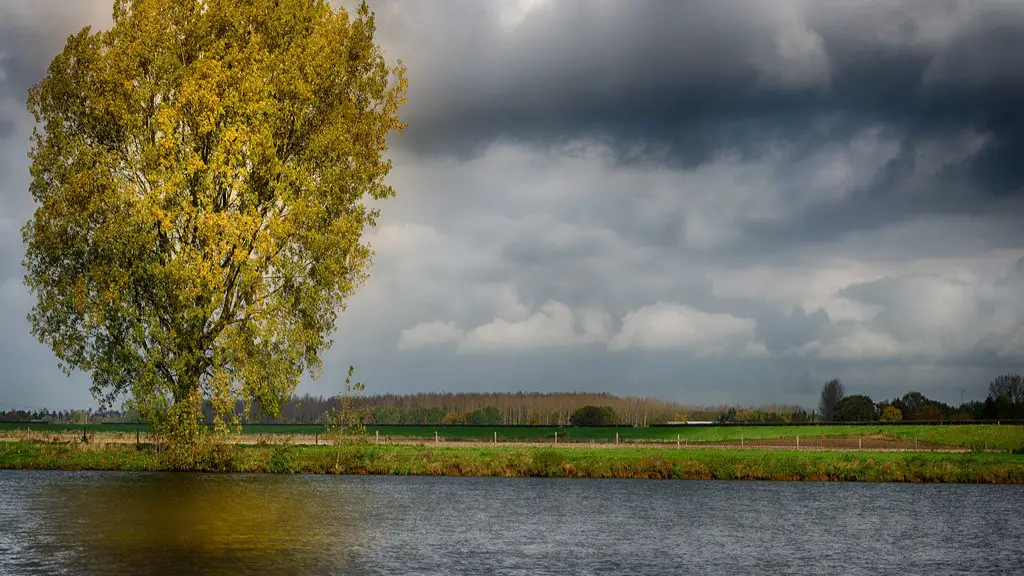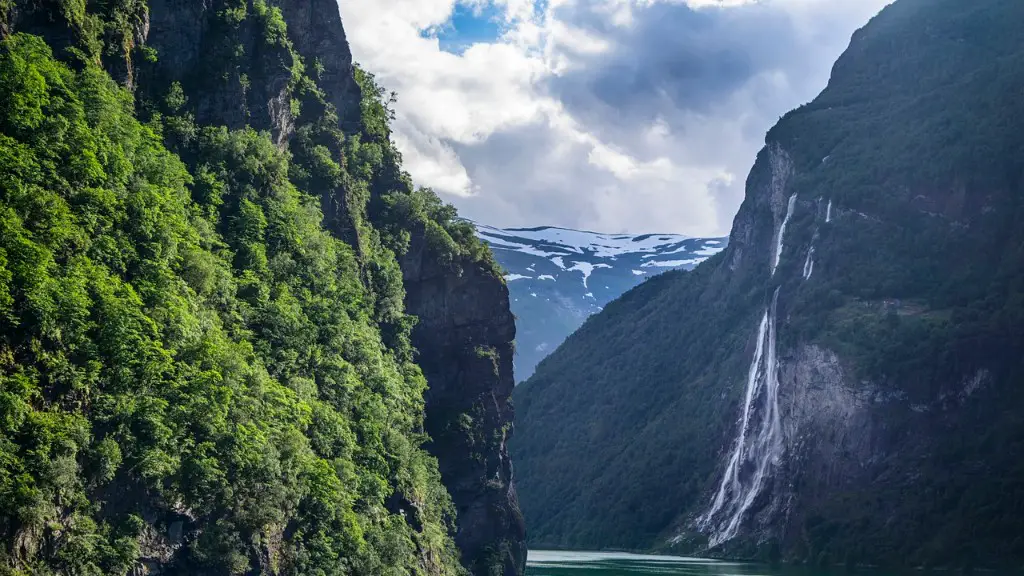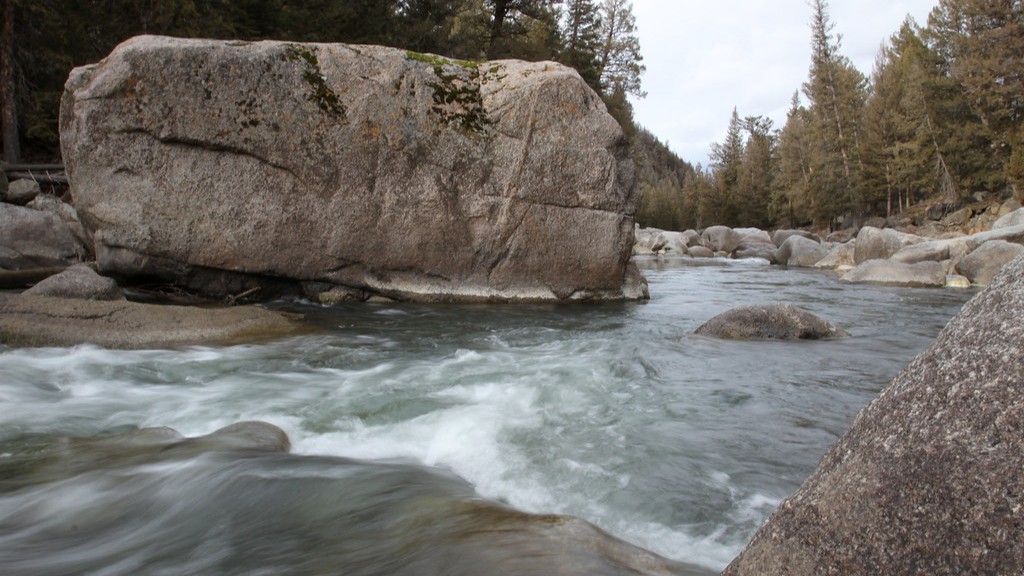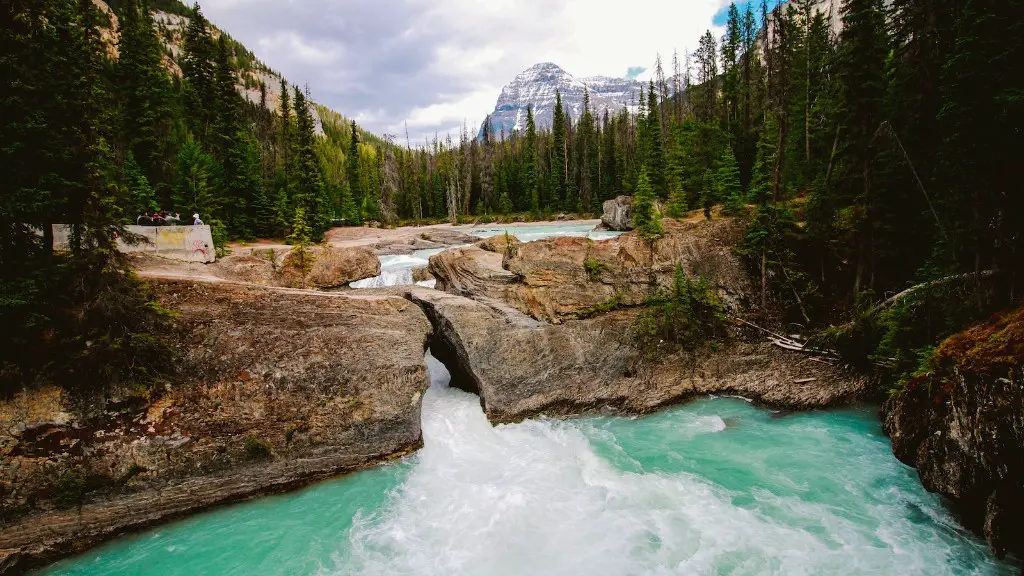The Nile River is a renowned river that has played an essential role in the history and development of civilizations. Flowing into its basin is one of the longest rivers in the world, spanning 4,258 miles and connecting 11 countries in Africa. It is the main source of water and life in these countries, providing basic resources such as food, water, and transportation while connecting many cultures together. The Nile has been significant throughout the entire course of human history and it has a strong cultural and economic role in many African countries.
The Nile River originates from Lake Victoria and flows northwards through countries such as Tanzania, Uganda, Sudan and finally Egypt, where it empties into the Mediterranean Sea. It carries an immense amount of water and nutrients, making it a major artery of the African continent’s water cycle. As a river flowing through different countries, the waters of the Nile are shared by several nations and management is necessary to maximize benefits while minimizing disadvantages.
Legally, negotiations have been held concerning equitable use of the Nile’s waters. Unfortunately, some countries are not living up to their responsibilities, which is resulting in a disproportionate use of the river’s resources. This means that the countries downstream suffer more from a lack of sufficient water and have fewer access to the resources of the Nile River.
In terms of ecological importance, the Nile River is home to many endangered species such as the gazelle and several varieties of hippopotamus and is a major contributor to the well-being of several ecosystems. It not only provides water and nutrients for different types of vegetation to grow but it is also an important route for migratory birds.
Past civilizations have been strongly dependant on the Nile River and it is one of the oldest continuous cultural landscapes of the world. It has provided the resources necessary for societies to establish themselves and to create a homogeneous cultural identity. The river has acted as a vital source of irrigation, navigation, and energy as well as playing an influential role in the economic and cultural histories of the countries it flows through.
The importance of the Nile River is undeniable. To ensure the continuation of benefits, sustainable management should be implemented so that resources are shared an utilized responsibly. The protection of the river’s biodiversity is essential and further measures need to be taken to prevent any conflicts between countries claiming rights to the river’s waters.
Impact of Global Warming
The impact of global warming on the Nile River is noteworthy, as temperatures have increased over the last decade, causing a decrease in the river’s flow. The accumulation of pollutants from agricultural runoff, industrial discharges and sewage has led to an increase in the salt concentrations of the river. This salinization has a negative effect on the quantity and quality of the water, perpetuating the water crisis in Egypt.
Due to global warming, periods of prolonged drought are becoming more common, diminishing the river’s flow and negatively impacting the lives of the citizens living in the basin. Extreme temperatures also cause water shortages and put stress on natural water bodies. Furthermore, the rates of evaporation are significantly greater in warmer air temperatures, causing additional pressure on the natural water reservoirs.
This adds to the very real prospect that the water in the Nile River could soon be too polluted and too hot for human consumption. This would lead to an increase in the price of water, making it increasingly difficult for the local communities to cope.
Water Management
Given the importance of the Nile River, talks of a new water sharing framework called the “Water Sharing Agreement” are taking place. This endeavor was started in 2020 and is aimed at achieving a cooperation between all of the Nile Basin countries who share the Nile’s waters. This would allow for equitable usage of the river and enhance access to its resources for everyone.
The Egyptian government has also taken steps to improve water management and promote environmental sustainability. For instance, the government established the “Water Resources Management and Security Program” which aimed to improve water supply and quality whilst also protecting agricultural land and resources. The government has undertaken a number of projects such as restoring wetlands to protect biodiversity and improving wastewater treatment in order to reduce pollutants in the water.
On a broader level, the Egyptian government has joined forces with other countries to ensure a sustainable supply of water in the future. The Nile Basin Initiative (NBI) has been launched with the aim of protecting the river’s ecology while also providing access to resources to the different countries in its catchment.
Environmental Issues
Despite the recent efforts to protect the river, it is still facing several environmental problems. The most serious one is the proliferation of invasive alien species. This could disrupt the natural habitats of local aquatic species and have a significant impact on the Nile’s ecology. Additionally, climate change and human activity pose a threat to the Nile’s health and its biodiversity.
The Nile is currently also facing an increased level of pollutants from mineral-rich soils, chemicals, sewage and urban waste. This rampant pollution can have an adverse effect on the water quality and make it dangerous for drinking or swimming in. Deforestation, meanwhile, has increased soil erosion in many parts of the Nile Basin, which can lead to higher sediment concentration and reduced fertility of the soil.
The issue of sedimentation is especially worrisome as it can lead to changes in the river’s topography. The shift in sediment can cause the sides of the river to become shorter and shallower and lead to a decrease of its capacity to carry nutrients and the transportation of materials down its course.
Solutions
Clearly, a comprehensive and comprehensive water management policy is needed to ensure the sustainability of the Nile River. This entails investing in infrastructure, creating laws, and raising awareness in order to conserve and protect the resources of this vital river. Governments must step up and ensure that policies are effectively enforced to reduce the amount of pollution in the river.
Attention must be paid to the deteriorating environmental conditions of the river and preventive measures need to be taken to ensure its protection. Additionally, the implementation of eco-tourism initiatives with adequate regulations is necessary in order to promote economic growth while preserving the environment.
Moreover, transnational action is needed from all countries in the Nile Basin to guarantee the security and prosperity of the river. The effective management of the river’s waters entails that all countries are willing to cooperate for the common goal of protecting the river. This should include establishing efficient water management systems, encouraging more efficient use of water and promoting sustainable farming techniques.
The Role of Science
In order to successfully face the threats that the river is currently facing, it is important for science to take a leading role in its protection. Advanced scientific techniques should be implemented to promote efficient water management, as well as to evaluate the environmental conditions of the river and its importance to the region.
The implementation of advanced technology also can provide precise forecasts and assessments of the water availability and qualities that can help inform decisions concerning the management of the river. On the other hand, it is important to encourage research focusing on the Nile’s ecology, hydrology and its sociology, in order to gain a better understanding of the resource and its importance to the local communities.
The conservation of the Nile River is of utmost importance in order to secure the present and future wellbeing of its basin countries. A joint effort is needed in order for this shared resource to be managed in a way that takes into consideration all stakeholders and promotes sustainable use. This can only be achieved by working together and recognizing our responsibility of protecting this valuable resource.

